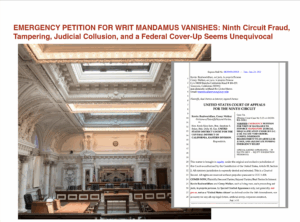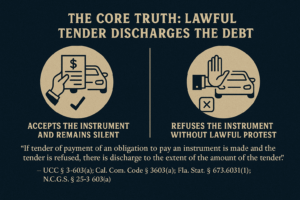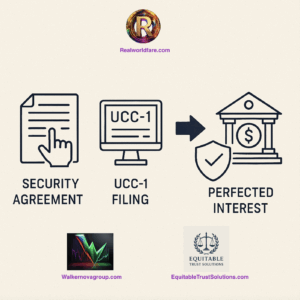In legal disputes, parties who lack a strong position or valid counterarguments often resort to deceptive tactics to deflect, discredit, or distract from substantive issues. These strategies rely on dismissive rhetoric, vague assertions, and avoidance of direct engagement with evidence or law. Such tactics not only undermine the integrity of the legal process but can also serve as implicit admissions of a weak or untenable position. Below is a comprehensive list of common deceptive tactics used to avoid addressing legal arguments effectively:
- Argument by Assertion: Repeatedly labeling claims as “baseless” or “meritless” without offering any supporting evidence or legal reasoning. This tactic relies on empty repetition to create a false appearance of invalidation.
- Failure to Rebut: Ignoring the specific laws, facts, or evidence presented, effectively leaving the argument unrebutted. Under the principle of unrebutted evidence, this silence can be interpreted as tacit agreement.
- Ad Hominem Diversion: Attacking the credibility of the opposing party by using dismissive or insulting language rather than addressing the actual merits of their argument.
- Red Herring Fallacy: Distracting from the core legal points by introducing irrelevant claims or using dismissive remarks to divert attention from the issues at hand.
- Lack of Substantive Response: Failing to engage with the evidence or citations provided, which demonstrates an inability to offer a legitimate defense.
- Appeal to Authority Without Authority: Using vague and unsupported terms like “frivolous” or “meritless” to create an illusion of authority without providing any legal basis to substantiate the claim.
- Evasion Through Vagueness: Using non-specific or ambiguous language to avoid addressing the specific details of the legal argument, thereby sidestepping the central issues.
- Burden-Shifting Fallacy: Attempting to place the burden of proof on the opposing party, even when they have already presented substantial evidence to support their claims.
- Empty Rhetoric: Responding with conclusory or emotionally charged statements that lack evidence, reasoning, or legal references, relying solely on rhetoric to undermine the argument.
- Conclusive Dismissal: Dismissing claims outright as invalid without providing any analysis, facts, or counterarguments to support the dismissal.
- Strawman Tactic: Mischaracterizing the opposing party’s argument in vague or exaggerated terms, making it easier to dismiss without addressing its actual substance.
- Bad Faith Response: Demonstrating a lack of good faith by refusing to engage with the argument in a meaningful or fair manner, relying instead on dismissive tactics to avoid accountability.
- Selective Omission: Deliberately ignoring key points, evidence, or legal references presented by the opposing party, hoping that the omissions go unnoticed or unaddressed. This tactic relies on the assumption that partial engagement can suffice to weaken the argument without having to confront it in its entirety
These tactics are often used as a shield to mask the lack of a strong legal foundation. Identifying and pointing out these behaviors can help refocus attention on the substantive issues at stake and highlight the weaknesses in the opposing party’s position.
Original article read on Realworldfare.




